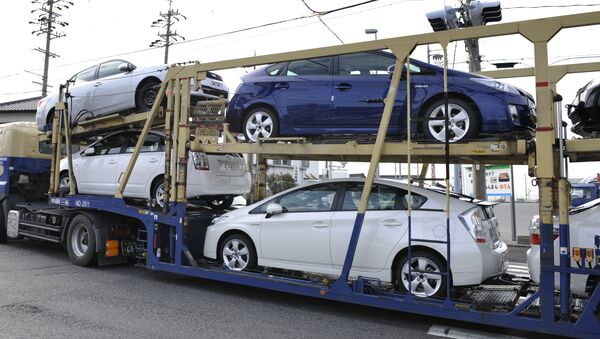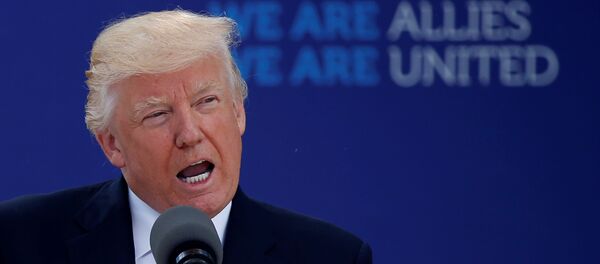Kristian Rouz — Japanese investors have expressed optimism of their country's economic prospects after the US and Mexico reached a bilateral trade accord Monday. The dollar strengthened due to improved investor confidence on Wall Street, resulting in a weaker yen — a boon to Japanese exporters.
The US-Mexican deal boosted the appetite for risk among international investors, who dumped safe haven assets in favor of more lucrative opportunities. The Japanese yen, one of the world's most prominent safe havens — slid 0.2 percent to 111.26 yen per dollar Tuesday morning.
READ MORE: US Pressures EU for Quick Progress on Trade Deal
Subsequently, the export-reliant Japanese economy is now expecting a resurgence in business activity, as a weaker yen makes Japan's exports more competitive in international markets.
A de-escalation in trade tensions in North America also boosted cross-yen trades, supporting an influx of investment capital into Japan.
"Cross-yen pairs like euro/yen…have been a function of risky assets," Shusuke Yamada of the Tokyo branch of Bank of America Merrill Lynch said.
The Japanese economy rebounded in the second quarter, expanding 0.5 percent from the previous three months after a 0.2-percent quarterly contraction in Q1.
This projected acceleration in Japanese exports will allow the nation's economy to build on the momentum, pointing to a further pickup in GDP growth towards the yearend.
Previously, some economists expressed concern over the tepid growth in Japan's exports as hindering a more robust economic acceleration.
"Export growth is stagnating, so we may not see external demand drive the economy," Takeshi Minami of Norinchukin Research Institute said earlier this month. "But that will be offset by strong capital expenditure and improvements in consumption."
However, the US-Mexican deal has alleviated such concerns, as the Japanese exports appear to be in for modest gains in the near-term.
Reflecting the renewed investor optimism, Japan's main stock index, the Nikkei, rose to its 11-week high, briefly touching 23,000.
READ MORE: Alaska Business Worried About US-China Trade War — World Trade Center Alaska
The increased capitalization of Japan's public companies is expected to boost shareholder payments and contribute to a modest increase in private-sector investment — providing additional support to broader GDP expansion.
"Investors are relieved (about) receding trade worries but there are several other factors in the US that are raising sentiment for the Japanese market," Norihiro Fujito of Mitsubishi UFJ Morgan Stanley Securities said.
Additionally, the deal between the US and Mexico comes after lengthy, tense negotiations. Some investors in Japan have suggested that Tokyo and Washington could eventually reach a similar trade deal as well, allowing the Japanese manufacturers to boost their presence in the US.
This would point to greater revenues for many Japanese enterprises in the medium-to-long term.
"The US economy is strong, and its corporate earnings are bright while inflation is under control, so the environment is favorable for risky asset investors," Mitsubishi's Fujito said.
Meanwhile, the Bank of Japan (BoJ) received another bullish signal from the bond market, adding to the pressure on the central bank to
start gradually wrapping up its ultra-accommodative monetary policies. Benchmark 10-year Japanese governmental bond (JGB) yield rose 0.005 percent to 0.095 percent — adding upward pressure on natural interest rates.
The BoJ has kept its rate at —0.1 and zero percent for the past couple of years, but higher natural rates suggest such a policy might no longer be relevant to the market reality. Higher yields also support an influx of investment in Japan.


